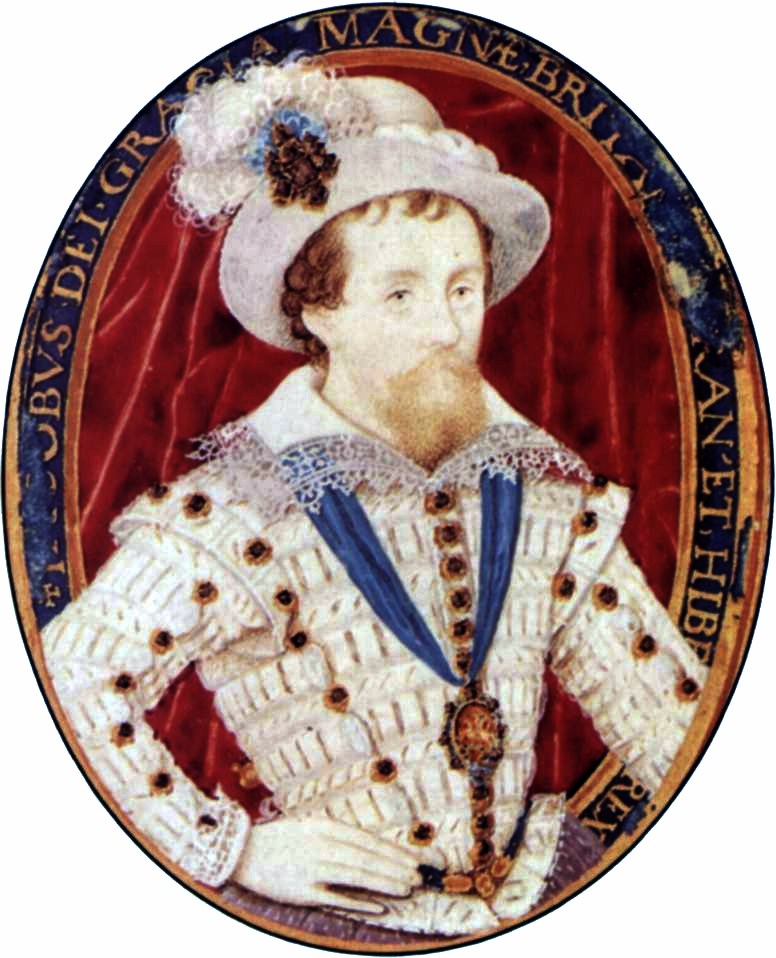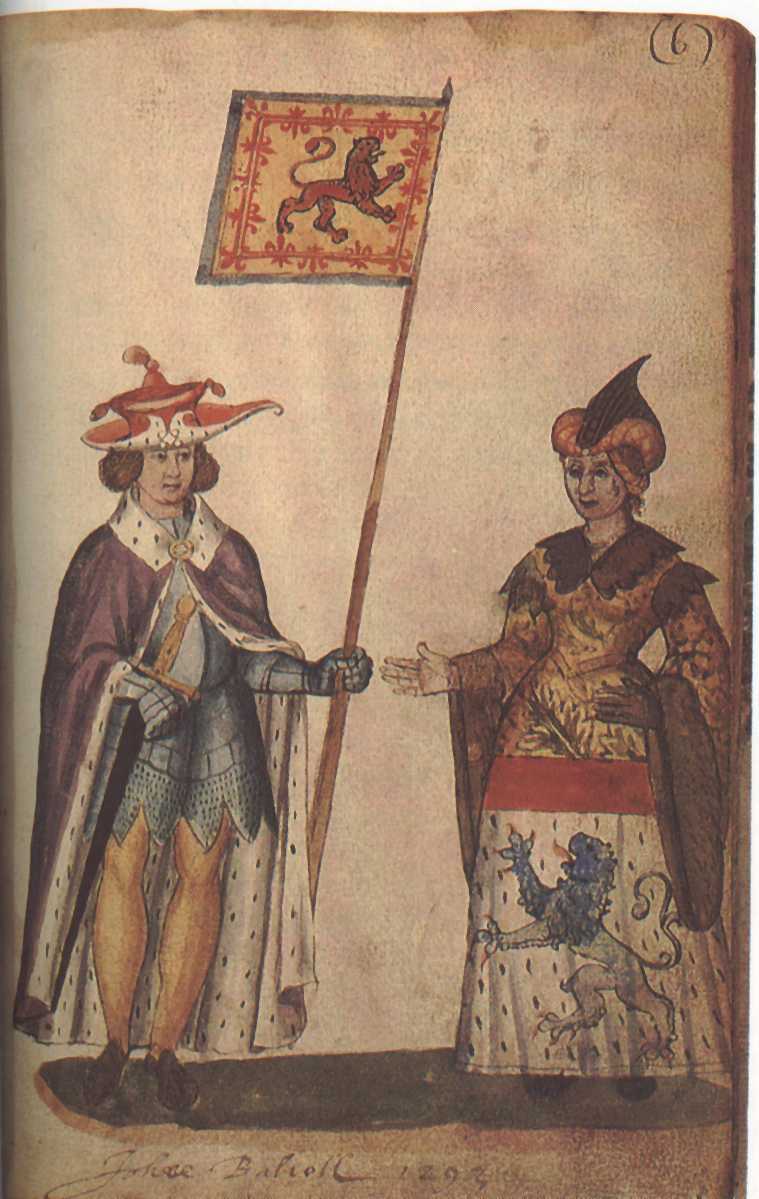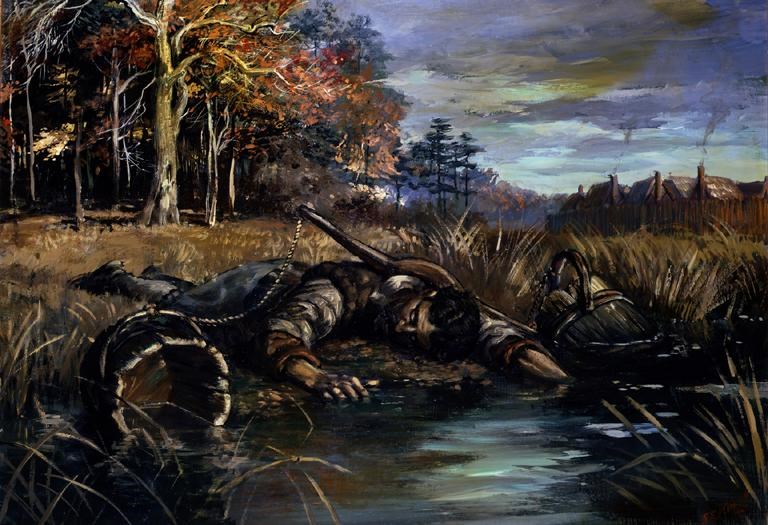|
Calvin's Case
''Calvin's Case'' (1608), 77 ER 377, (1608) Co Rep 1a, also known as the ''Case of the Postnati'', was a 1608 English legal decision establishing that a child born in Scotland, after the Union of the Crowns under King James VI and I in 1603, was considered under the common law to be an English subject and entitled to the benefits of English law. ''Calvin's Case'' was eventually adopted by courts in the United States, and the case played an important role in shaping the American rule of birthright citizenship via ''jus soli'' ("law of the soil", or citizenship by virtue of birth within the territory of a sovereign state). Facts Under the feudal system, the allegiance owed to a king by his subjects—connected as it was to the holding of interests in land—ruled out the possibility of any given individual holding land in two different kingdoms. Robert Calvin, born in Scotland in November 1605, was granted estates in England, but his rights to that were challenged on the grounds ... [...More Info...] [...Related Items...] OR: [Wikipedia] [Google] [Baidu] |
Exchequer Chamber
The Court of Exchequer Chamber was an English appellate court for common law civil actions before the reforms of the Judicature Acts of 1873–1875. It originated in the fourteenth century, established in its final form by a statute of 1585. The court heard references from the King's Bench, the Court of Exchequer and, from 1830, directly rather than indirectly from the Court of Common Pleas. It was constituted of four judges belonging to the two courts that had been uninvolved at first instance. In cases of exceptional importance such as the ''Case of Mines'' (1568) and '' R v Hampden'' (1637) twelve common law judges, four from each division below, sitting in Exchequer Chamber, might be asked to determine a point of law, the matter being referred by the court hearing the case rather than the parties. Though further appeal to the House of Lords was possible, this was rare before the nineteenth century. As a rule, a judgment of the Exchequer Chamber was considered the definitive ... [...More Info...] [...Related Items...] OR: [Wikipedia] [Google] [Baidu] |
Allegiance
An allegiance is a duty of fidelity said to be owed, or freely committed, by the people, subjects or citizens to their state or sovereign. Etymology From Middle English ''ligeaunce'' (see medieval Latin ''ligeantia'', "a liegance"). The ''al-'' prefix was probably added through confusion with another legal term, ''allegeance'', an "allegation" (the French ''allegeance'' comes from the English). ''Allegiance'' is formed from "liege," from Old French ''liege'', "liege, free", of Germanic origin. The connection with Latin ''ligare'', "to bind," is erroneous. Usage Traditionally, English legal commentators used the term ''allegiance'' in two ways. In one sense, it referred to the deference which anyone, even foreigners, was expected to pay to the institutions of the country where one lived. In the other sense, it meant national character and the subjection due to that character. Types * Local allegiance * Natural allegiance United Kingdom The English doctrine, which was at one ... [...More Info...] [...Related Items...] OR: [Wikipedia] [Google] [Baidu] |
Divine Right Of Kings
In European Christianity, the divine right of kings, divine right, or God's mandation is a political and religious doctrine of political legitimacy of a monarchy. It stems from a specific metaphysical framework in which a monarch is, before birth, pre-ordained to inherit the crown. According to this theory of political legitimacy, the subjects of the crown have actively (and not merely passively) turned over the metaphysical selection of the king's soul – which will inhabit the body and rule them – to God. In this way, the "divine right" originates as a metaphysical act of humility and/or submission towards God. Divine right has been a key element of the legitimisation of many absolute monarchies. Significantly, the doctrine asserts that a monarch is not accountable to any earthly authority (such as a parliament) because their right to rule is derived from divine authority. Thus, the monarch is not subject to the will of the people, of the aristocracy, or of any other esta ... [...More Info...] [...Related Items...] OR: [Wikipedia] [Google] [Baidu] |
Absolute Monarchy
Absolute monarchy (or Absolutism as a doctrine) is a form of monarchy in which the monarch rules in their own right or power. In an absolute monarchy, the king or queen is by no means limited and has absolute power, though a limited constitution may exist in some countries. These are often hereditary monarchies. On the other hand, in constitutional monarchies, in which the authority of the head of state is also bound or restricted by the constitution, a legislature, or unwritten customs, the king or queen is not the only one to decide, and their entourage also exercises power, mainly the prime minister. Absolute monarchy in Europe declined substantially following the French Revolution and World War I, both of which led to the popularization of theories of government based on the notion of popular sovereignty. Absolute monarchies include Brunei, Eswatini, Oman, Saudi Arabia, Vatican City, and the individual emirates composing the United Arab Emirates, which itself is a fe ... [...More Info...] [...Related Items...] OR: [Wikipedia] [Google] [Baidu] |
English Parliament
The Parliament of England was the legislature of the Kingdom of England from the 13th century until 1707 when it was replaced by the Parliament of Great Britain. Parliament evolved from the great council of bishops and peers that advised the English monarch. Great councils were first called Parliaments during the reign of Henry III (). By this time, the king required Parliament's consent to levy taxation. Originally a unicameral body, a bicameral Parliament emerged when its membership was divided into the House of Lords and House of Commons, which included knights of the shire and burgesses. During Henry IV's time on the throne, the role of Parliament expanded beyond the determination of taxation policy to include the "redress of grievances," which essentially enabled English citizens to petition the body to address complaints in their local towns and counties. By this time, citizens were given the power to vote to elect their representatives—the burgesses—to th ... [...More Info...] [...Related Items...] OR: [Wikipedia] [Google] [Baidu] |
Alien (law)
In law, an alien is any person (including an organization) who is not a citizenship, citizen or a nationality, national of a specific country, although definitions and terminology differ to some degree depending upon the continent or region. More generally, however, the term "alien" is perceived as synonymous with foreign national. (explaining that "the term 'foreign national' means.... (2) an individual who is not a citizen of the United States or a national of the United States (as defined in section 1101(a)(22) of title 8) and who is not green card, lawfully admitted for permanent residence, as defined by section 1101(a)(20) of title 8."). Lexicology The term "alien" is derived from the Latin ''alienus'', which in turn is derived from the Oscan ''mancupatis'', (a proto-Etruscan tribe), meaning a slave. The Latin later came to mean a stranger, a foreigner, or someone not related by blood. Similar terms to "alien" in this context include ''foreigner'' and ''lander''. Categor ... [...More Info...] [...Related Items...] OR: [Wikipedia] [Google] [Baidu] |
King Of Scots
The monarch of Scotland was the head of state of the Kingdom of Scotland. According to tradition, the first King of Scots was Kenneth I MacAlpin (), who founded the sovereign state, state in 843. Historically, the Kingdom of Scotland is thought to have grown out of an earlier "Kingdom of the Picts" (and later the Kingdom of Strathclyde that was conquered in the 11th century, becoming part of the new Kingdom of Scotland) though in reality the distinction is a product of later medieval myth and confusion from a change in nomenclature i.e. ('King of the Picts') becomes (King of Alba) under Donald II of Scotland, Donald II when annals switched from Latin to vernacular around the end of the 9th century, by which time the word in Scottish Gaelic had come to refer to the Kingdom of the Picts rather than Britain (its older meaning). The List of kings of the Picts, Kingdom of the Picts just became known as the Kingdom of Alba in Scottish Gaelic, which later became known in Scots lan ... [...More Info...] [...Related Items...] OR: [Wikipedia] [Google] [Baidu] |
King Of England
The monarchy of the United Kingdom, commonly referred to as the British monarchy, is the constitutional form of government by which a hereditary sovereign reigns as the head of state of the United Kingdom, the Crown Dependencies (the Bailiwick of Guernsey, the Bailiwick of Jersey and the Isle of Man) and the British Overseas Territories. The current monarch is King Charles III, who ascended the throne on 8 September 2022, upon the death of his mother, Queen Elizabeth II. The monarch and their immediate family undertake various official, ceremonial, diplomatic and representational duties. As the monarchy is constitutional, the monarch is limited to functions such as bestowing honours and appointing the prime minister, which are performed in a non-partisan manner. The sovereign is also able to comment on draft laws which directly affect the monarchy. The monarch is also Head of the British Armed Forces. Though the ultimate executive authority over the government is still ... [...More Info...] [...Related Items...] OR: [Wikipedia] [Google] [Baidu] |
Nicholas Hilliard 020
Nicholas is a male given name and a surname. The Eastern Orthodox Church, the Roman Catholic Church, and the Anglican Churches celebrate Saint Nicholas every year on December 6, which is the name day for "Nicholas". In Greece, the name and its derivatives are especially popular in maritime regions, as St. Nicholas is considered the protector saint of seafarers. Origins The name is derived from the Greek name Νικόλαος (''Nikolaos''), understood to mean 'victory of the people', being a compound of νίκη ''nikē'' 'victory' and λαός ''laos'' 'people'.. An ancient paretymology of the latter is that originates from λᾶς ''las'' ( contracted form of λᾶας ''laas'') meaning 'stone' or 'rock', as in Greek mythology, Deucalion and Pyrrha recreated the people after they had vanished in a catastrophic deluge, by throwing stones behind their shoulders while they kept marching on. The name became popular through Saint Nicholas, Bishop of Myra in Lycia, the inspirati ... [...More Info...] [...Related Items...] OR: [Wikipedia] [Google] [Baidu] |
London Virginia Company
The London Company, officially known as the Virginia Company of London, was a division of the Virginia Company with responsibility for colonizing the east coast of North America between latitudes 34° and 41° N. History Origins The territory granted to the London Company included the eastern coast of North America from the 34th parallel ( Cape Fear) north to the 41st parallel (in Long Island Sound). As part of the Virginia Company and Colony, the London Company owned a large portion of Atlantic and inland Canada. The company was permitted by its charter to establish a settlement within this area. The portion of the company's territory north of the 38th parallel was shared with the Plymouth Company, with the stipulation that neither company found a colony within 100 miles (161 km) of the other. The London Company made landfall on 26 April 1607, at the southern edge of the mouth of the Chesapeake Bay, which they named Cape Henry, near present-day Virginia Beach. Decidi ... [...More Info...] [...Related Items...] OR: [Wikipedia] [Google] [Baidu] |
Robert A
The name Robert is an ancient Germanic given name, from Proto-Germanic "fame" and "bright" (''Hrōþiberhtaz''). Compare Old Dutch ''Robrecht'' and Old High German ''Hrodebert'' (a compound of '' Hruod'' ( non, Hróðr) "fame, glory, honour, praise, renown" and ''berht'' "bright, light, shining"). It is the second most frequently used given name of ancient Germanic origin. It is also in use as a surname. Another commonly used form of the name is Rupert. After becoming widely used in Continental Europe it entered England in its Old French form ''Robert'', where an Old English cognate form (''Hrēodbēorht'', ''Hrodberht'', ''Hrēodbēorð'', ''Hrœdbœrð'', ''Hrœdberð'', ''Hrōðberχtŕ'') had existed before the Norman Conquest. The feminine version is Roberta. The Italian, Portuguese, and Spanish form is Roberto. Robert is also a common name in many Germanic languages, including English, German, Dutch, Norwegian, Swedish, Scots, Danish, and Icelandic. It can be use ... [...More Info...] [...Related Items...] OR: [Wikipedia] [Google] [Baidu] |






